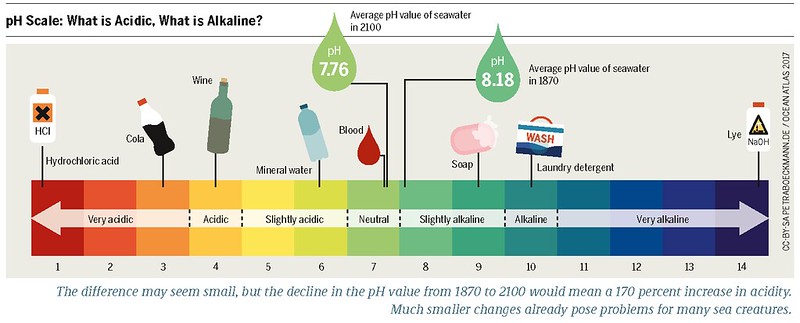The pH value of water in the human body should ideally be around 7.4, which is slightly alkaline. This pH level is crucial for the body’s cells and tissues to function properly. However, it’s important to note that the pH of the water you drink doesn’t significantly affect your body’s pH level, as your kidneys and lungs regulate your body’s pH.
Understanding the Importance of pH in the Human Body
The pH scale ranges from 0 to 14, with 7 being neutral. Values below 7 are considered acidic, while values above 7 are considered alkaline. The human body’s pH level is tightly regulated to maintain a slightly alkaline environment, typically between 7.35 and 7.45.
This pH range is essential for the proper functioning of the body’s systems, including:
-
Enzyme Activity: Many enzymes in the body require a specific pH range to function optimally. Deviations from this range can impair enzyme activity, leading to various health issues.
-
Oxygen Delivery: The pH level affects the ability of hemoglobin, the protein in red blood cells that carries oxygen, to bind and release oxygen effectively. A slightly alkaline pH facilitates the release of oxygen to the body’s tissues.
-
Cellular Function: The pH level influences the movement of nutrients and waste products in and out of cells, as well as the overall cellular environment. Maintaining a balanced pH is crucial for cellular health and function.
-
Acid-Base Balance: The body’s pH level is regulated by the lungs and kidneys, which work together to maintain a stable acid-base balance. Imbalances in this system can lead to various health problems, such as metabolic acidosis or alkalosis.
Factors Affecting the pH of Water in the Human Body
While the pH of the water you drink doesn’t significantly impact your body’s pH level, there are several factors that can influence the pH of water:
-
Contaminants and Chemicals: Substances like acids, bases, and heavy metals can alter the pH of water, making it more acidic or alkaline.
-
Natural Processes: Certain natural processes, such as the dissolution of minerals in the soil or the presence of organic matter, can also affect the pH of water.
-
Human Activities: Human activities, such as industrial processes, mining, and agriculture, can introduce contaminants into water sources, leading to changes in pH.
-
Water Treatment: The methods used to treat water, such as chlorination or filtration, can also impact the pH of the final product.
Balancing the pH of Water
To balance the pH of water, you can use various methods, including:
-
Home Remedies: Adding baking soda (sodium bicarbonate) to increase the pH or vinegar to decrease the pH can help balance the water’s pH. However, it’s crucial to ensure that the water is safe to drink and use.
-
Professional Testing and Treatment: If you suspect that your water’s pH level is unusual, it’s best to have it tested by a professional. They can identify the specific contaminants or issues and recommend appropriate treatment methods to balance the pH.
Maintaining a Healthy pH in the Human Body
While the pH of the water you drink doesn’t significantly affect your body’s pH level, it’s essential to maintain a healthy pH balance within your body. Here are some tips:
-
Eat a Balanced Diet: Consuming a diet rich in fruits, vegetables, and whole grains can help maintain a slightly alkaline pH in the body.
-
Stay Hydrated: Drinking plenty of water can help dilute and flush out any excess acids in the body.
-
Manage Stress: Chronic stress can lead to an increase in acid production, so it’s important to find healthy ways to manage stress, such as through exercise, meditation, or relaxation techniques.
-
Monitor Your Health: If you have any concerns about your body’s pH balance, it’s best to consult with a healthcare professional, who can perform the necessary tests and provide personalized recommendations.
Conclusion
The pH of water in the human body is an important factor in maintaining overall health and well-being. While the pH of the water you drink doesn’t significantly impact your body’s pH level, it’s crucial to ensure that your water is free from contaminants and chemicals that can alter its pH. By understanding the importance of pH in the human body and taking steps to maintain a healthy balance, you can support your body’s optimal function and overall health.
References:
– Intermountain Healthcare. (2017-06-07). Does the pH Level of Your Drinking Water Really Matter? https://intermountainhealthcare.org/blogs/does-the-ph-level-of-your-drinking-water-really-matter/
– Kulthanan, K., Nuchkull, P., & Varothai, S. (2013-07-30). The pH of water from various sources: an overview for recommendation for patients with atopic dermatitis. https://www.ncbi.nlm.nih.gov/pmc/articles/PMC3736366/
– WebMD. (2023-09-25). What Is Alkaline Water? https://www.webmd.com/diet/what-is-alkaline-water
– News-Medical. (n.d.). pH in the Human Body. https://www.news-medical.net/health/pH-in-the-Human-Body.aspx
– Medical News Today. (2019-12-02). The pH of water: What to know. https://www.medicalnewstoday.com/articles/327185

